Pakistan and India Exchange Airstrikes Amid Escalating Conflict
India and Pakistan exchanged airstrikes, escalating tensions between the nuclear-armed neighbors after India targeted Pakistani military bases and Pakistan retaliated with strikes on Indian military airfields.
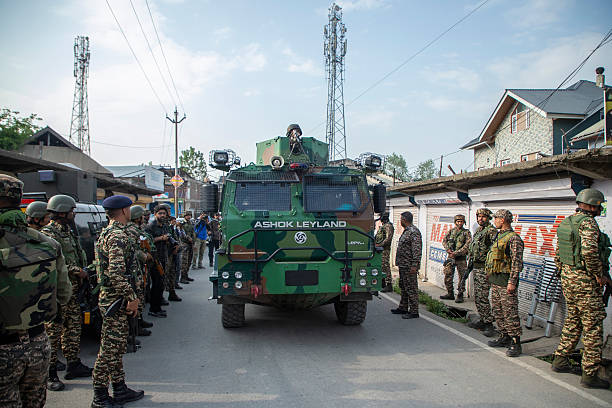 SRINAGAR, JAMMU AND KASHMIR, INDIA - 2025/05/07: Indian paramilitary soldiers cordon off the area after an unknown aircraft crashed in Wuyan near Indian-administered Kashmir's main city of Srinagar. India fired missiles at Pakistani territory early on May 7, killing at least eight people, according to Pakistan, which said it had begun retaliating in a major escalation between the nuclear-armed rivals. (Photo by Faisal Bashir/SOPA Images/LightRocket via Getty Images)
SRINAGAR, JAMMU AND KASHMIR, INDIA - 2025/05/07: Indian paramilitary soldiers cordon off the area after an unknown aircraft crashed in Wuyan near Indian-administered Kashmir's main city of Srinagar. India fired missiles at Pakistani territory early on May 7, killing at least eight people, according to Pakistan, which said it had begun retaliating in a major escalation between the nuclear-armed rivals. (Photo by Faisal Bashir/SOPA Images/LightRocket via Getty Images)Pakistan said it had begun retaliation strikes after accusing India of targeting three of its military bases with missiles fired from fighter jets, in a major escalation of the brewing conflict between the two nuclear-armed neighbors.
“India, with its naked aggression, has attacked with missiles. Nur Khan base, Murid base and Shorkot base have been targeted,” Pakistan military spokesperson Ahmed Sharif Chaudhry said in a live broadcast aired by state television early on Saturday.
Shortly afterwards, Pakistan officials confirmed they had begun their counter attack against India, under the name Operation Bunyan Ul Marsoos, a phrase from the Quran meaning ‘wall of lead’. Pakistan said their targets were Pathankot military air field and the BrahMos missile storage site in the Indian state of Punjab as well as Udhampur air force base in Indian-administered Kashmir.
Explosions and shelling from anti-aircraft guns was heard in the vicinity of all the sites. Loud explosions were also heard in the Indian-Kashmir city of Srinagar. Pakistan‘s planning minister Ahsan Iqbal Chaudhary told local media that “special measures” had been taken to avoid civilian targets in India and that they were striking locations that had been used to target Pakistan.
A statement from India’s ministry of defence said: “The Indian Armed Forces are maintaining a high state of alert, and all such aerial threats are being tracked and engaged using counter-drone systems.” Chaudhry said India had fired six surface-to-air missiles from military jet over the border in Punjab. He said most were intercepted by Pakistani air defences.
The early morning strikes on Nur Khan in Rawalpindi, a densely populated area, caused mass panic, with residents running into the streets. “There was a loud explosion which woke everyone up. It was so scary, everyone is still in a panic,” said one resident living nearby.
This marks the steepest escalation in their confrontation yet, bringing the two countries the closest they have been to war in decades. On Wednesday India’s missiles struck nine sites in Pakistan killing 31 people. Those strikes in turn were India’s response to an attack in Indian-administered Kashmir late last month, in which militants killed 25 Hindu tourists and a guide, which they alleged had Pakistan’s involvement.
India claimed to have launched four drone strikes at Pakistan, directly targeting military defence infrastructure. In a press conference on Friday, the Indian military alleged that Pakistan’s drone attacks on Thursday had targeted a gurdwara, a Sikh place of worship, injuring a civilian, and that the drones had also targeted Christian churches. “The targeting of temples, gurdwaras, convents is a new low by Pakistan,” said India’s foreign secretary, Vikram Misri.
Pakistan’s information minister, Attaullah Tarar, denied the drone attacks and said Pakistan had not undertaken any “offensive actions” within Indian Kashmir or beyond Pakistan’s border. However, a Pakistan security official said that Thursday night’s drone strikes were just to “heat things up” before Pakistan launched a fully fledged retaliatory attack. “When we hit back, everyone will know,” they said.
The Pakistani army gave new details of Wednesday’s strike in which it claimed Pakistan had deployed more than 100 planes to ward off the strikes by Indian planes that carried out the attacks from Indian airspace. It said the two sides had engaged in an hour-long aerial dogfight. Pakistan claimed it used Chinese-made weapons and ground air defences to help bring down five Indian fighter jets.
India has yet to respond to allegations that Pakistan shot down its planes, but debris from at least three fighter jets, including that of at least one elite French Rafale jet, was seen in Indian-administered Kashmir and Punjab.
Speaking to Geo news after Pakistan began its counter attack, Ishaq Dar, the country’s foreign minister and deputy prime minister, said Pakistan had been left with no choice to retaliate. “It is the responsibility of the international community to play their role and they should have played their role when India had attacked Pakistan days ago and killed civilians,” he said. “We showed so much restraint.”



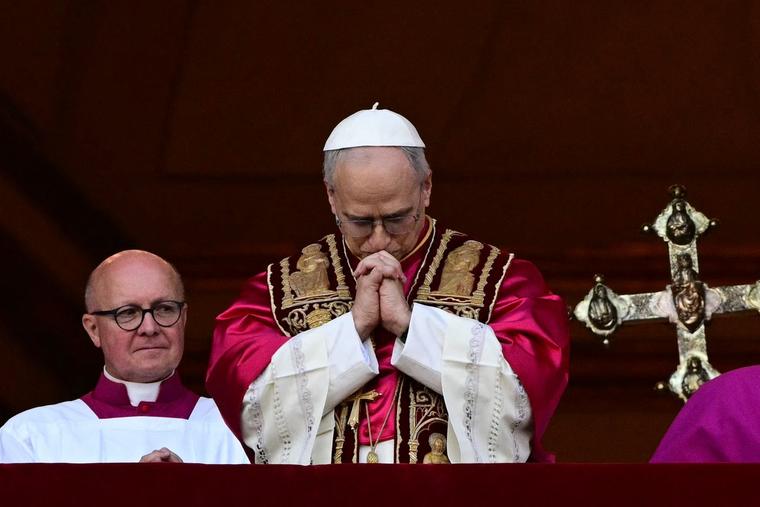
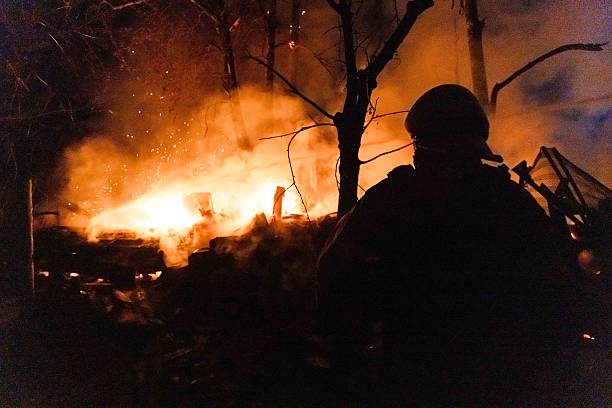
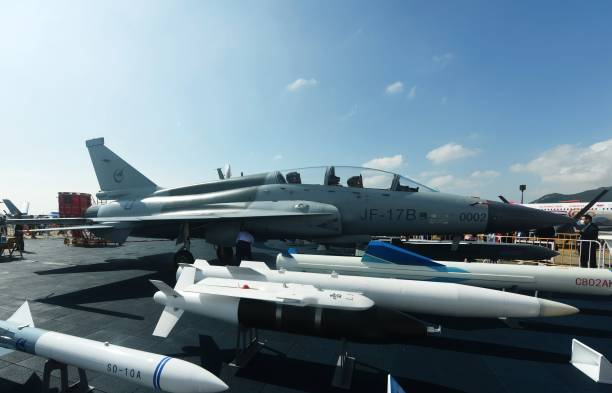
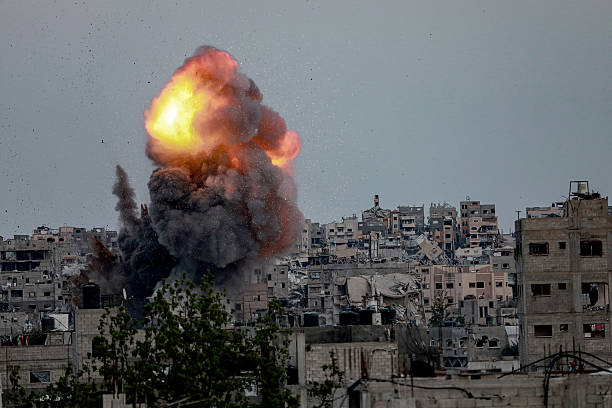
Conversation